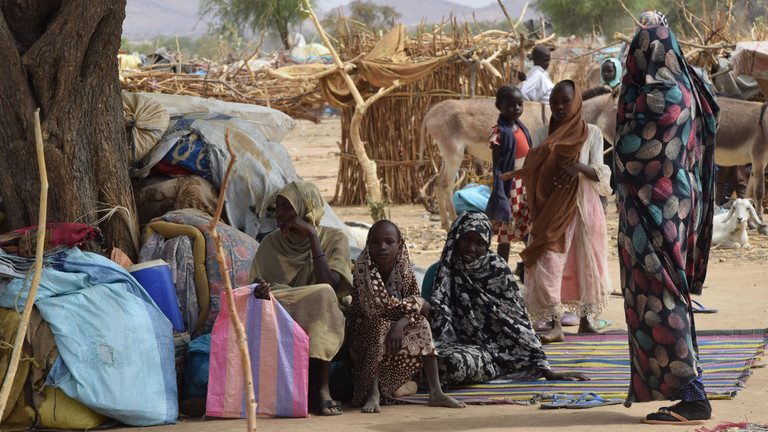Africa
Refugee crisis in Chad caused by the Darfur killings – UN

According to a UN assessment released on Tuesday, Chad is experiencing a refugee crisis as a result of a surge of individuals escaping violence in neighbouring Sudan. The landlocked nation is currently hosting one of Africa’s largest and fastest-growing refugee populations.
The organisation reports that over a million Sudanese have fled to Chad overall, including those who fled the Darfur civil war in 2003, which claimed an estimated 300,000 lives.
On Tuesday, the UN Food Programme (WFP) issued a warning that financial shortfalls may force it to stop providing help to over a million people living in food insecurity in Chad, including recently arrived refugees from Sudan.
“Due to financial constraints, the World Food Programme (WFP) will have to stop providing aid to internally displaced individuals and refugees from Nigeria, the Central African Republic, and Cameroon in December. This ban will be extended to 1.4 million individuals in Chad starting in January, including recent immigrants from Sudan who will not be provided with food when they cross the border, the announcement stated.
A deadly combination of intercommunal violence and climate-related issues that have hindered agricultural production have made Chad’s already severe food shortages and malnutrition worse. Chad, which is currently among the ten most hungry nations in the world, came in last in the 2020 Global Hunger Index. The military administration of Chad announced a food emergency and requested outside assistance last year.
Food-insecure communities in the Sahel region are further burdened by the growing refugee crisis, according to the World Food Programme (WFP), which also stated that it was only ready to provide assistance to less than half of the people it had targeted in August.
“The UN food agency stated that WFP could only provide aid to 1 million out of the 2.3 million people it had targeted, leaving 1.3 million people without assistance at the height of the lean season, when hunger strikes the hardest.”
The International Organisation for Migration (IOM) reports that over 6.2 million people have been forced to flee their homes as a result of seven months of combat between the paramilitary Rapid Support Forces (RSF) and the Sudanese Armed Forces.
Doctors Without Borders (MSF) stated earlier this month that there has been an increase in the number of refugees fleeing the fighting Sudanese factions into Chad from the West Darfur region of Sudan. This increase is believed to be ethnic in nature. In the first three days of this month, over 7,000 people—including women and children—entered the Chadian city of Adre, according to the medical charity.
